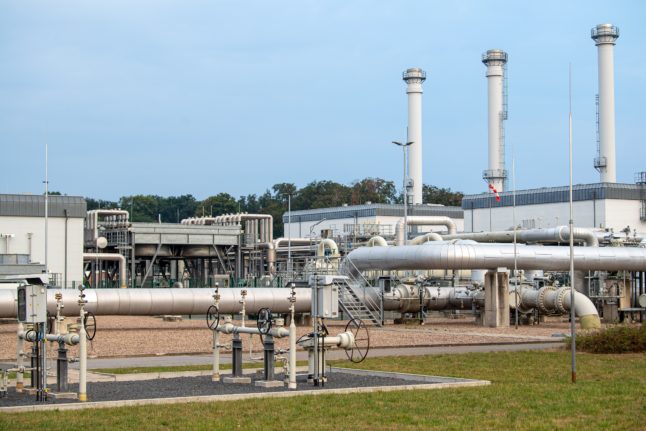The European Union is on track to beat targets for filling gas storage, but analysts warn the bigger factor for energy security this winter will be whether countries can slash consumption enough to ensure stored fuel lasts through the coldest months.
Following a scramble for fuel over the summer after top European gas supplier Russia invaded Ukraine, Europe's gas storage is now 79.94% full, Gas Infrastructure Europe data shows, setting up countries to exceed their target to have 80% full storage by November.
In a normal year that could cover Europe's winter peak in gas use. But in 2022, with Russian flows already sharply lower - the amount of gas it sends through Nord Stream 1, its main pipeline route into Europe, is at just 20% of capacity - storage will not make up the balance.
Full gas storage could sustain European countries for, at best, about three months, according to Aurora Energy Research. In Germany, home to nearly a quarter of the EU's storage, stored gas could meet 80 to 90 days of average demand.
"To cope with this crisis situation, demand reduction will be even more important than storage," Simone Tagliapietra, a senior fellow at the Bruegel think-tank, told Reuters.
With around 888 terawatt hours (TWh) of gas now in storage, EU countries have already surpassed the 858 TWh their stocks peaked at ahead of last winter.
But if countries fail to cut their use of the fuel, Europe's gas caverns would still be emptied by March, according to modelling by data intelligence firm ICIS shared with Reuters - even in a scenario where some Russian gas keeps flowing all winter, and the weather is not unusually cold.
To avert a winter supply crisis, each month countries need to cut their gas use to 15% below the five-year average, ICIS said. That would leave post-winter storage 45% full if Russia kept sending gas, and 26% full if Russia cut flows from October.
A combination of no Russian gas and no aggressive reduction in gas consumption in industries and buildings "could result in electricity rationing" this winter, said Mauro Chavez Rodriguez, European gas research director at Wood Mackenzie.
Yet so far, sustained cuts in gas demand on the scale needed have not happened despite multiple industries being forced by extraordinary gas prices to curtail their output - a phenomenon now affecting two-thirds of European fertiliser production capacity.











